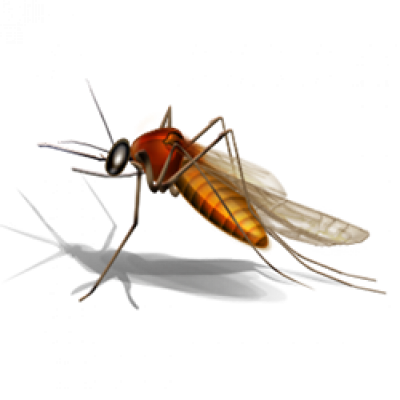West Nile Facts
SOME FACTS ABOUT WEST NILE VIRUS, MOSQUITOES AND HOW YOU CAN PROTECT YOURSELF AND YOUR FAMILY
The Oakland County Board of Commissioners has provided $500,000 to cities, villages and townships within Oakland County to help combat the West Nile Virus (WNV). White Lake Township has been allocated nearly $14,000 through this action to assist our efforts of minimizing the risk of Township residents contracting the virus. West Nile is primarily a disease of bird populations. The virus is spread when a mosquito bites and extracts blood from an infected bird and then subsequently bites an uninfected bird, thereby increasing the scope of the disease. Nearly all cases of mosquitoes carrying the WNV have been Culex mosquitos. Adult Culex Mosquitos live in high trees in order to be close to birds, which are the preferred food source for Culex mosquitos. Humans are among the least desirable sources of blood for the Culex mosquito. Culex Pipien and Culex restuan prefer to lay their eggs in stagnant water with high organic content, such as pool covers, scrap tires, sewage lagoons, catch basins and the like. In Oakland County, the number of human cases of West Nile Virus has increased since early August from one to nine. West Nile Virus is transmitted by the bite of an infected mosquito. Mosquitoes become infected by biting an infected bird. There are no cases of the virus being transmitted from an infected person to another person. There are no cases of catching the virus from your dog or cat if they are infected. Your dog, cat or horse can only be infected the same way a human is – through the bite of an infected mosquito. The best way to combat the virus is to eradicate places where mosquitoes breed. Mosquitoes breed in standing water. Check your yard and areas around your home for standing water. Some suggestions on where to look are tire swings, bird baths, kiddie pools, empty cans, wheelbarrows, toys, tree holes, clogged rain gutters and rain barrels. Check for water once a week and if it’s found, empty it out. Another method to minimize exposure to WNV is to reduce the population of the Culex mosquito. By applying larvicides in mosquito habitat and breeding areas that present larvae from maturing into adult mosquitos and applying adulticides to control mature mosquitoes, populations can be effectively controlled.
Use insect repellent. The CDC recommends the use of insect repellents containing active ingredients registered with the U.S. Environmental Protect Agency (EPA). Repellents containing DEET, picaridin, and oil of lemon eucalyptus are especially effective. Take care to follow manufacturer’s directions for use, especially on children.Please take note that repellents containing DEET are NOT safe for pets. Avoid being outdoors at dusk and dawn when mosquitoes are the most active. When outdoors, wear light colored, long-sleeved shirts and long pants. Maintain window and door screening to help keep mosquitoes out of buildings. There is no vaccine for West Nile Virus at this time. Older adults, over 50, are more at risk or adults with a compromised immune system. In a small number of people infected, the disease can be serious, even fatal. Most people bitten by a West Nile Virus infected mosquito show no symptoms of illness. However, some become sick three to 15 days after exposure. About one-in-five infected persons will have mild illness with fever, headache, muscle weakness and body aches. About one in 150 infected people will become severely ill. Symptoms of encephalitis (inflammation of the brain) and meningitis (inflammation of the spinal cord and brain linings) include stiff neck, stupor, disorientation, coma, tremors, muscle weakness, convulsions and paralysis. Pets can be treated by a veterinarian as full recovery from the infection is likely. If you find a dead bird, DO NOT touch it without hand protection.
Please refer to www.michigan.gov/emergingdiseases. (Select West Nile Virus, then, How to Report a Dead Bird or Animal). Currently, the White Lake Township Environmental Department has treated and will continue to treat storm sewer catch basins with Vectolex WSP, a bacterial larvacide, throughout the entire Township. At this point there are no plans to implement an adulticide spraying program, but if the need presents itself a spray program will be in place.

